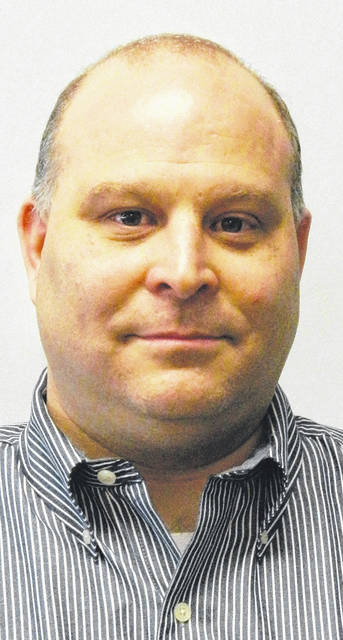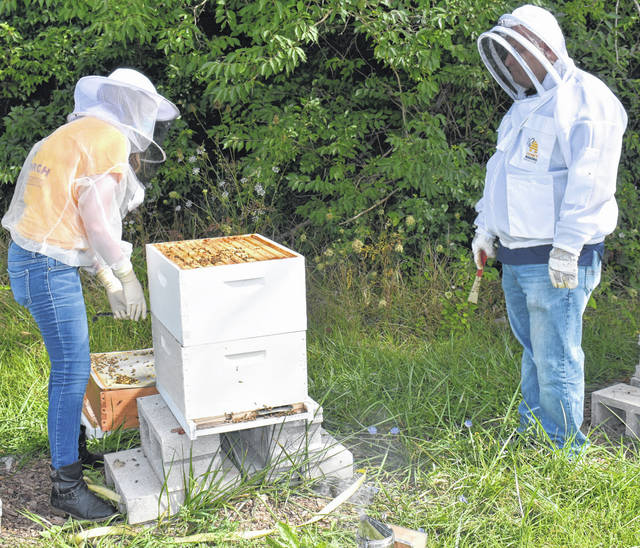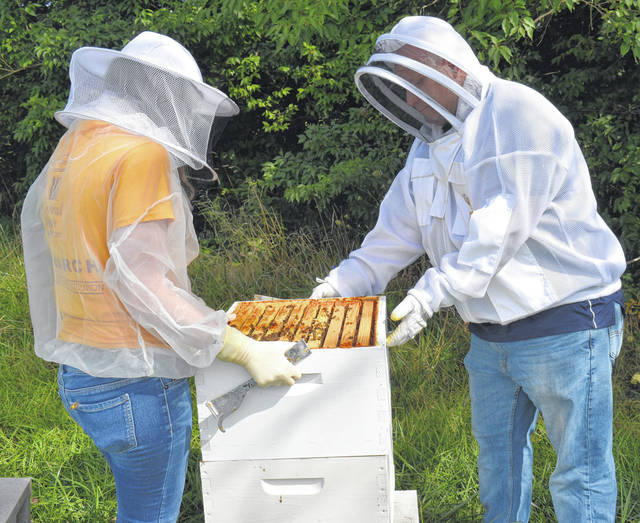


I recently had a chance to check out some sweet research going on at Central State University … and attempt to conquer one of my fears at the same time.
CSU Research Assistant Professor Dr. Hongmei Li-Byarlay is coordinating an apiculture program under the CSU Extension umbrella. Apiculture is a fancy way of saying beekeeping — honeybees to be exact. And while I love honey and likely kept Post in business by consuming mass quantities of its Honeycomb cereal, bees and really any flying insect that stings scare the, um … let’s just say I’m not a fan.
But … promised a bee suit complete with gloves and a mask that reminded me I’m claustrophobic — yeah, I have issues — I thought I would accept an invitation to buzz on over and see the hives up close and personal.
As I write this I’m still not a fan of things with wings and stings. But Ashley Cordle, an apiculture field technician, walked me through it all and I escaped unscathed. As a result, I have a new appreciation for beekeepers, that’s for sure.
More importantly, however, was the knowledge I gained.
Apiculture — officially the maintenance of honeybees and hives — provides farmers and hobbyists with a plethora of enterprises including production of beeswax, honey and other edible bee products; crop pollination services, and sale of bees to other beekeepers. According to the folks at CSU, the research there focuses on testing innovative hypotheses in the fields of sustainable apiculture, genomics, genetics, behavior, and stress physiology of honeybees and pollinators.
All that in a few rather generic looking boxes.
I kept my distance at first, but Cordle convinced me I couldn’t see much from 100 yards away. OK, I wasn’t that far, but ya know, issues. Eventually I did move close enough to actually see the honey inside the hive, find the queen, and really just take in how the bees dwell in their little homes. Fortunately Cordle opened one of the more tame hives — which I greatly appreciated — and gave me full control of the smoker that emits a calming fragrance. I’m fairly certain it was full when I grabbed it and had it smoked-out within minutes as the bees decided they didn’t like me much either.
Full disclosure, I don’t blame them. If someone came to my house and ripped the roof off and started removing pieces of furniture I would be a tad salty as well.
But all joking aside, this was a fantastic experience. I learned a lot about bee-havior (I know, groan), how larvae can become the queen, what the workers do, and what happens to the “lucky” male who mates with the queen (it doesn’t end well). To be able to see the work and research being done to make sure apiculture will be around for decades was worth the accelerated heart rate and quick exit stage left once we (reads: I) decided our task was complete.
I had the heebie-jeebies all the way back to the office and I swear a couple workers followed me back to Xenia, but I survived.
Not far from the bee hive collection is a field flowing with hemp, part of another research project.
Can’t wait for that invite.




